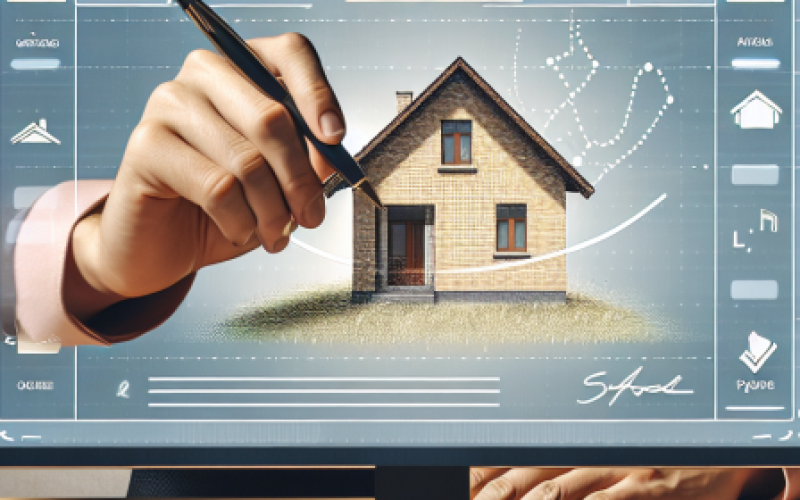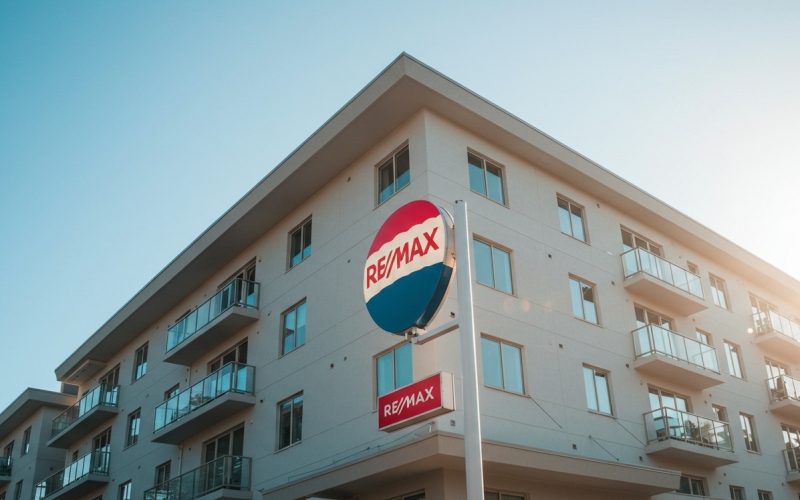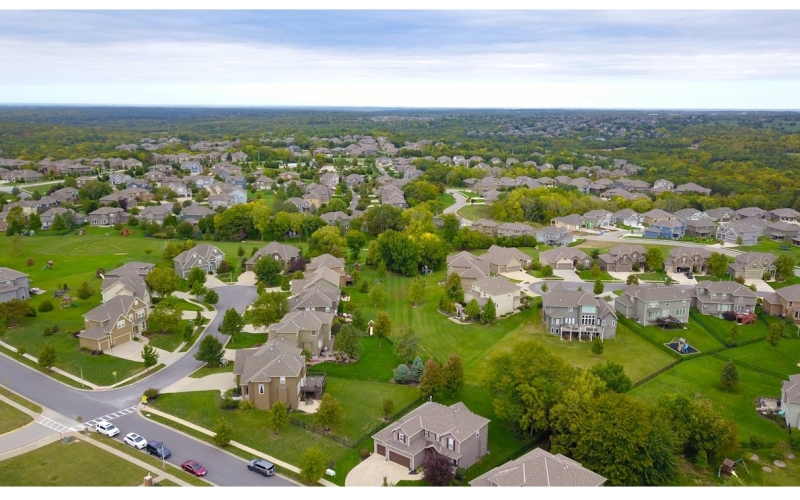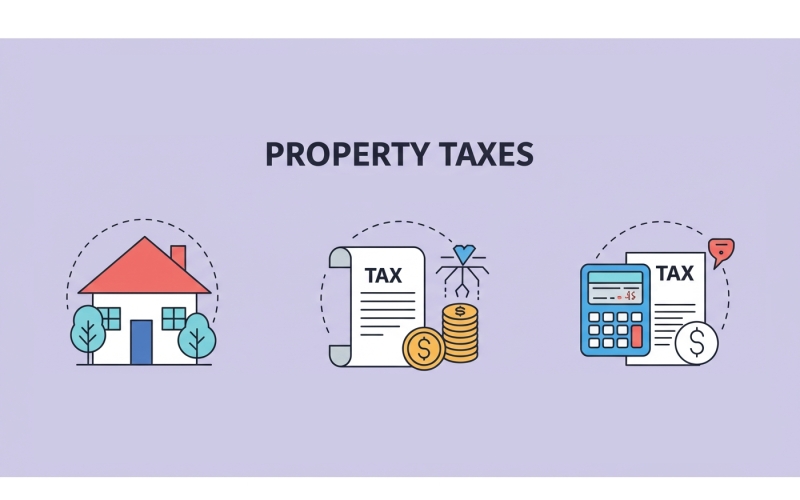The Best Real Estate Tools For Homebuyers

Key Takeaways
- Today’s real estate tools make homebuying faster, easier, and more organized.
- Apps like Zillow, Realtor.com, and the RE/MAX App help you search smarter.
- Tools like Niche and CrimeMapping give insights into neighborhoods.
- Mortgage calculators help you plan your budget before making an offer.
- Platforms like SignFast let you sign documents safely from anywhere.
These days, finding a home is as easy as tapping your phone. A few decades ago, people had to drive around neighborhoods, check newspaper ads, and call up agents just to get a list of homes. Now? Home listings, photos, virtual tours, and neighborhood stats are all online, and many tools can even alert you when a new home hits the market.
But here’s the thing: while house hunting has gone digital, some parts of the homebuying process still feel stuck in the past. Like paperwork.
From offers to disclosures, buying a home involves a ton of documents — and many buyers are starting to ask, “Why are we still printing and signing everything by hand?”
Isn’t there a way to make this part easier, too?
Good news: There is. In fact, today’s best real estate tools can help homebuyers not only search for the perfect home but also stay organized, make smart decisions, and even sign papers online — without the back-and-forth or wasted time.
Let’s look at the top tools that are changing the way people buy homes.
Why Homebuyers Need the Right Tools
There’s a lot to keep track of: listings, prices, neighborhoods, interest rates, paperwork, appointments, and deadlines. If you’re not careful, it will overwhelm you.
That’s why having the right tools matters.
Real estate tools help you stay in control. They give you the power to search smarter, act faster, and keep everything organized in one place. Whether it’s comparing home prices, checking school ratings, or signing an offer from your phone, these tools are made to save time and reduce stress.
For first-time buyers, they can be a game changer. Instead of wondering what to do next or feeling unsure, tools can guide you step by step — like having a digital assistant by your side through the entire journey.
And with so much of the process moving online, using these tools isn’t just helpful — it’s becoming essential.
Best Real Estate Tools for Homebuyers
There are tons of apps and websites out there, but here are the ones that actually help — from start to finish.
Home Search Platforms & Apps
Finding the right home starts with knowing what’s out there. These tools help you explore listings, set alerts, and connect with agents — all from your phone.
- Zillow
One of the most popular apps for browsing homes. You can see photos, estimated prices, and schedule showings with a few taps.
- Realtor.com
Pulls data straight from the MLS, which means listings are up to date and accurate. It also shows local market trends.
- RE/MAX App
If you’re shopping in Sioux City, this one’s especially helpful. The RE/MAX app connects you with local listings and agents fast. It even has GPS-based search, so you can see what’s for sale around you in real time. You can download for IOS or Android here.
Mortgage Calculators & Affordability Tools
Before you fall in love with a home, it’s smart to know what you can afford.
- NerdWallet
Helps you figure out your monthly payment, down payment options, and how much house you can comfortably buy.
- Bankrate
Offers up-to-date interest rate comparisons and helpful calculators to break down costs.
Neighborhood Research Tools
You’re not just buying a home — you’re buying into a community. These tools help you learn more about the area before making an offer.
- Niche
Gives detailed info on schools, safety, demographics, and what locals think of the area.
- CrimeMapping
Shows recent police activity in neighborhoods so you can check safety data yourself.
Document & E-signing Tools
This is where many buyers feel stuck — paperwork. But now, you don’t have to run around printing, scanning, or mailing documents.
- SignFast
A fast, secure e-signature platform that works great for real estate. With SignFast, you can sign offers, disclosures, and contracts straight from your phone or laptop. It saves time, keeps everything organized, and helps you move forward quickly — without dealing with messy paperwork.
Home Inspection & Walkthrough Apps
Want to make sure a home is in good shape? These apps can help you track issues and understand what to expect.
- Homezada
Lets you manage everything from maintenance schedules to home improvement budgets.
- Magicplan
Use your phone to create floor plans, measure rooms, and document property details — super handy during walkthroughs.
Budgeting & Moving Tools
After the offer is accepted, the work isn’t over. These tools make the transition smoother.
- Mint
Helps you create a budget so you don’t overspend during the move.
- Sortly
A simple inventory app that helps you keep track of what’s packed, where it’s going, and what’s still left to do.
How to Use These Tools Together
These tools work best when you use them as part of a step-by-step plan. Here’s how they can fit into your homebuying journey:
- Start with Search Apps
Use the RE/MAX App, Zillow, or Realtor.com to find homes that match what you're looking for. Set alerts so you don’t miss new listings.
- Check the Neighborhood
Once you find a few homes you like, use Niche and CrimeMapping to learn more about the area — schools, safety, and overall vibe.
- Run the Numbers
Before scheduling showings, use Bankrate or NerdWallet to see what you can afford and what your monthly payments might look like.
- Tour and Inspect Smartly
During walkthroughs, use Magicplan or Homezada to take notes, scan room sizes, or track repairs you might need to ask for.
- Stay Organized for Moving
Tools like Mint and Sortly help you manage your moving budget, track boxes, and keep everything from getting lost in the shuffle.
- Sign from Anywhere
Once you're ready to make an offer, SignFast lets you sign contracts and disclosures without driving across town or juggling paperwork. It keeps everything moving — even if you’re out of town or on the go.
The Bottom Line
The homebuying process is sometimes too technical for some, and it takes a good real estate agent to streamline or ease up the process for you. And finding a good real estate agent? So hard to find. Which is why, especially if you are a busy person who doesn’t have enough time to attend home tours and sign papers, especially in another state if you are planning to move out, these tools can greatly help you in tracking, signing, studying, and planning everything that revolves around your perfect next home.
These days, you need to move faster because the faster you move, the more money you save. And the more organized you are, the less you make mistakes, and today, a mistake costs a lot! So, before anything else in terms of finding your next home, be sure to try these tools yourself first!
FAQs
Do I need to pay for these tools?
Most tools are free to use. Some have paid versions, but the free ones work great for most homebuyers.
Can I buy a home completely online?
Yes, in many cases you can! From searching to signing, most steps can now be done digitally.
What’s the best app for finding homes in my area?
Zillow, Realtor.com, and the RE/MAX App are all great. They show listings based on your location and what you're looking for.
Are e-signatures legal when buying a home?
Yes, e-signatures are legally accepted for real estate contracts whether national or by state, just make sure you’re using a trusted platform like SignFast.
Do I still need a real estate agent if I use these tools?
Yes. Real estate agents still have to do negotiations for you, and they also have connections to make sure you are well guided. They also ensure you are protected and you get the best out of your money.
Recent Blogs


What Is Buyer’s Remorse? How to Avoid Regret After Buying a Home
You saved, planned, and finally signed all the paperwork. The keys are in your hand, and your new home is officially yours. But as the excitement fades, a strange feeling sneaks in. Instead of joy, you start to feel unsure. You wonder, "Did I make the right choice?" or "What if I rushed into this?"
Read MoreWhat Is Buyer’s Remorse? How to Avoid Regret After Buying a Home
1031 Exchange Explained: How to Sell and Buy Property Without Paying Taxes (Right Away)
A 1031 exchange is a rule in the U.S. tax code that lets you sell one investment property and buy another without paying taxes right away
Read More1031 Exchange Explained: How to Sell and Buy Property Without Paying Taxes (Right Away)
How to Find a Buyer for Commercial Real Estate
Finding the right buyer takes more than luck. It takes action. And the more prepared and involved you are, the faster your sale can happen—and the better your results will be.
Read MoreHow to Find a Buyer for Commercial Real Estate
Real Estate Branding: How to Build a Powerful Identity That Sells!
Strong brands create feelings. Whether it’s confidence, comfort, or trust—your brand is how you make clients feel before and after every deal.
Read MoreReal Estate Branding: How to Build a Powerful Identity That Sells!
What Is A Rental Property?
A rental property is being rented by the owner of said property for the sole purpose of making a profit.
Read MoreWhat Is A Rental Property?
What Happens to U.S. Real Estate When War Breaks Out?
When war breaks out, real estate markets react fast—home prices may drop, demand slows, interest rates shift, and investors often become more cautious.
Read MoreWhat Happens to U.S. Real Estate When War Breaks Out?
How to Start Investing in Real Estate Even If You're a Beginner!
Start investing in real estate by setting a budget, choosing a property type, getting financing, and working with a trusted agent or advisor.
Read MoreHow to Start Investing in Real Estate Even If You're a Beginner!
Listing Checklist Before Selling a House
Before listing your house, clean and declutter, make small repairs, and boost curb appeal. Gather key documents, set a fair price with your agent, and take quality photos. Keep the home clean and inviting for showings.
Read MoreListing Checklist Before Selling a House
Is It Cheaper to Build or Buy a House
Whether it's cheaper to buy or build a house depends on several factors like location, materials, and labor costs. In many areas, buying an existing home is often more affordable and faster than building one. However, building a home can give you more control over design and energy efficiency. It’s important to compare costs in your area and consider your budget, timeline, and preferences.
Read MoreIs It Cheaper to Build or Buy a House
Iowa Property Taxes of 2025
Iowa's property taxes are higher than the national average and vary by county. They are based on the value of land and buildings and help fund local services like schools and public safety. Taxes are paid in two installments each year.
Read MoreIowa Property Taxes of 2025
Cheapest Places to Live in Iowa
Iowa has several affordable places to live, such as Keokuk, Oelwein, and Fort Dodge, known for low housing costs and overall affordability. Keokuk offers scenic views with homes under $90,000, while Oelwein and Fort Dodge provide affordable rent and low property taxes. Cities like Waterloo and Creston also offer budget-friendly options, making Iowa a great choice for those seeking an affordable lifestyle.
Read MoreCheapest Places to Live in Iowa

